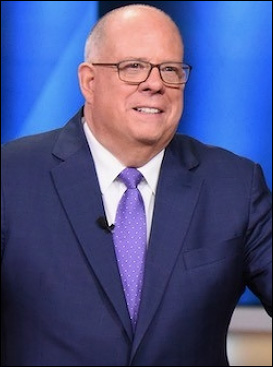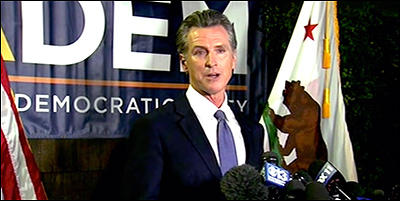By Jim Ellis — Friday, March 24, 2023
House
CA-41: Rep. Calvert Draws Familiar Challenger — Lake Elsinore City Councilman Tim Sheridan (D), who challenged Rep. Ken Calvert (R-Corona) twice in the pre-redistricting and much more Republican 42nd District, announced this week that he will return to again run for the House in 2024.In November, Rep. Calvert survived his second closest re-election effort, a 52-48 percent win over former federal prosecutor Will Rollins (D) in the new 41st District that is fully contained within Riverside County. We could see action in the all-party jungle primary because Rollins is also considering waging a return re-match with the 16-term incumbent.
RI-1: Special Election Candidate Count Expands to Six — As we reported yesterday, the RI-1 special election will be scheduled when Rhode Island Rep. David Cicilline (D-Providence) resigns from the House on June 1. This week, another four individuals announced their special Democratic primary candidacies already bringing the field’s total number to six.
Those previously declaring are Lt. Gov. Sabina Matos (D) and state Sen. Sandra Cano (D-Pawtucket). The latest to enter are state Rep. Nathan Biah (D-Providence), corporate Environmental, Social, and Governance (ESG) consultant Nick Autiello, financial consultant Allen Waters, and bus driver Mickeda Barnes. Also as mentioned yesterday, the special election will effectively be decided in the Democratic primary from a seat that the FiveThirtyEight data organization rates as D+32.
WI-3: Potential Challenger Candidates Skeptical — The 3rd District of Wisconsin occupies the state’s southwestern region and while often voting Republican for president, the electorate returned Democratic Rep. Ron Kind (D-La Crosse) to office 13 consecutive times. Kind retired in 2022, and the Democratic leadership basically conceded the seat to Republican Derrick Van Orden in that the national party spent no money to protect a seat their member held for 26 consecutive years. In the end, Van Orden did win, but his victory margin fell far below predictions in defeating state Sen. Brad Pfaff (D-La Crosse) 52-48 percent.
It appears that Pfaff and two other former congressional candidates, La Crosse City Councilman Mark Neumann and small business owner Rebecca Cooke, are considering entering the 2024 congressional race. All, however, are saying they won’t run unless they are assured of national outside party support.
Mayor
New Orleans: Recall Effort Fails — The move to force a recall vote against Crescent City Mayor LaToya Cantrell (D) came to an abrupt end at the petition signature deadline. The recall organization fell woefully short of recruiting the 45,000 registered voter signatures necessary to force a confirmation election. The Cantrell opposition group was only able to qualify approximately 27,000 signatures, or just 60 percent of the required number. The next regular mayoral election is scheduled for 2025.




